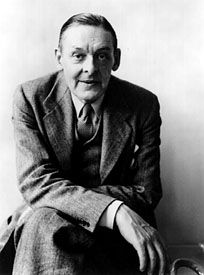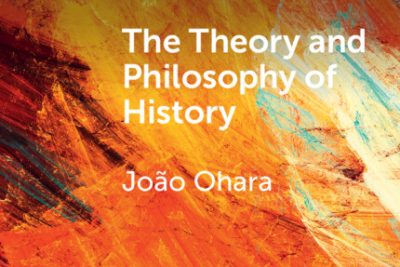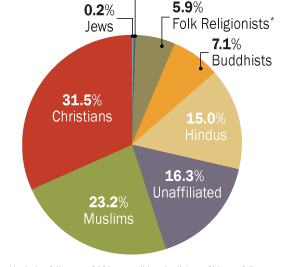
What are Eliot's biography, key works, and essential facts

T.S. Eliot (1888-1965) remains a literary icon whose influence resonates through modern literature, shaping the fabric of Anglo-American poetry and culture. His contributions span multiple genres, including poetry, drama, and literary criticism, positioning him as a pivotal figure in the Modernist movement. Eliot's most notable works, including "The Waste Land" and "Four Quartets," reflect profound themes of disillusionment and spiritual quest, echoing the complexities of the post-World War I world.
Born in the United States, Eliot later became a British citizen, embodying the blend of American and English literary traditions. His education at Harvard and time spent in France introduced him to influential philosophers and fellow poets, which greatly shaped his distinctive voice. Through innovative frameworks, such as the "objective correlative", Eliot pushed the boundaries of poetic expression, melding personal and cultural experiences into his work. This article delves into Eliot's biography, his key works, and essential facts that define his enduring legacy in literature.
T.S. Eliot: A Literary Icon
Early Life and Education
T.S. Eliot was born on September 26, 1888, in St. Louis, Missouri, into a prominent and cultured family. His father, Charles Eliot, was a successful businessman, while his mother, Charlotte Champe Stearns, was a poet and social worker. The cultured environment in which he grew up fostered Eliot's early love for literature and the arts. After graduating from high school, he attended Harvard University, where he studied various subjects including philosophy and literature. These studies would later inform his writing, imbuing it with complex themes and ideas.
In 1906, Eliot began his graduate studies at Harvard, where he formed pivotal intellectual connections. His interest in European literary movements led him to move to Paris in 1910, where he absorbed the vibrant cultural scene. His interactions with contemporary writers and artists, including Gertrude Stein and Ezra Pound, greatly influenced his evolving style. After returning to the United States, Eliot finished his coursework and received a degree in philosophy from Harvard in 1914. Shortly after his graduation, he made the permanent shift to Europe, and this transition would solidify his identity as an expatriate writer.
Key Works
The Waste Land: A Modernist Masterpiece
"The Waste Land," published in 1922, is often regarded as one of Eliot's most significant works and a cornerstone of Modernist literature. This ambitious poem captures the disillusionment and fragmentation of the post-war era, incorporating a variety of voices, literary influences, and cultural references. The poem is divided into five sections, each exploring different themes and perspectives on modern life, existence, and the search for meaning.
The use of multiple languages, literary allusions, and a collage of styles reflects the chaotic nature of the time. Central to "The Waste Land" is the recurring image of a barren landscape, symbolizing the spiritual desolation that permeated society. Eliot's innovative techniques, such as stream of consciousness and non-linear narrative, challenged traditional forms and created a new, distinct poetic language.
Four Quartets: Themes of Time and Spirituality
Published in 1943, "Four Quartets" is widely considered one of Eliot's finest achievements, encapsulating his reflections on time, meditation, and the human experience. The work consists of four interconnected poems—"Burnt Norton," "East Coker," "The Dry Salvages," and "Little Gidding"—that explore the cyclical nature of time and the reconciliation of past, present, and future. Eliot employs intricate imagery and rich symbolism to convey his spiritual journey and quest for meaning.
Each poem serves as a meditative exploration of humanity's relationship with existence, memory, and the divine. The themes of redemption and spiritual awakening emerge prominently throughout "Four Quartets," reflecting Eliot's own shift towards a more introspective and religious perspective after his conversion to the Church of England. This collection ultimately highlights his belief in the transcendence of time and the significance of spiritual awareness.
Major Themes in Eliot's Work
Eliot's oeuvre is characterized by a range of themes that resonate deeply within the context of 20th-century literature. Among these are disillusionment, loss, and the search for identity. His poetry reflects the fragmentation and chaos of modern life, opening a dialogue about the complexities of existence and the human condition. Eliot’s use of myth and symbolism often serves as a way to connect personal experiences with broader cultural narratives.
Another significant theme is the exploration of spirituality. Eliot's later works reveal his grappling with questions of faith and the divine, emphasizing the tension between secular modernity and spiritual yearning. His conversion to Christianity profoundly influenced his writing, introducing themes of redemption, hope, and existential inquiry, particularly in works such as "Ash Wednesday" and "Four Quartets."
Influence and Legacy
The impact of T.S. Eliot on the world of literature is profound and far-reaching. He is often credited with redefining the nature of poetry and establishing new aesthetic standards that influenced not only his contemporaries but also future generations of writers. His experimental style and innovative use of language paved the way for subsequent Modernist writers, establishing a new literary canon.
Moreover, Eliot's critical essays contributed to the evolution of literary theory. He introduced concepts such as the "dissociation of sensibility," which describes the split between thought and feeling in the modern world. These critical ideas continue to shape discussions in literary studies, reinforcing his role as not only a poet but also a key literary theorist.
Critical Essays and Contributions to Literary Theory
Eliot's contributions extend beyond poetry into the realm of literary criticism. His essays, including "Tradition and the Individual Talent," present a framework for understanding the relationship between tradition and innovation in literature. In this work, Eliot argues that a writer must be aware of the literary tradition and contribute to it while also infusing their unique voice.
His concepts of the "objective correlative" serve as foundational to understanding the influence of emotions in literature, encouraging writers to create associations through imagery and events rather than relying solely on emotional expression. Eliot's philosophical inquiries into art, culture, and morality have become essential readings for aspiring writers and scholars alike, solidifying his status as a profound thinker in literary circles.
Personal Beliefs and Religious Influence
Eliot's personal beliefs underwent significant changes throughout his life, particularly after his conversion to Anglicanism in 1927. This transformation profoundly impacted his writing. Eliot grappled with the meaning of faith, suffering, and redemption, themes that permeate his poetry. His religious convictions allowed him to explore profound existential questions while searching for spiritual fulfillment amidst a fragmented world.
His later works resonate with meditative qualities, focusing on the importance of faith, love, and the human search for God. The Christian overtones in "Four Quartets" and "Ash Wednesday" reveal Eliot's deep divide between the secular and the sacred, highlighting the struggle for spiritual truth in modernity.
Conclusion: Eliot's Enduring Impact on Literature
T.S. Eliot's legacy as a literary icon endures through his timeless works and transformative ideas. His exploration of profound themes such as disillusionment, spirituality, and the human condition continues to resonate with readers and writers alike. Through his innovative style and critical contributions, Eliot reshaped the landscape of modern poetry, inspiring generations to embrace the complexities of existence and the pursuit of meaning.
As we revisit Eliot's poetry and essays today, we recognize his unparalleled influence on contemporary literature. Whether through the haunting verses of "The Waste Land" or the reflective wisdom of "Four Quartets," Eliot invites us to engage deeply with the challenges and beauty of the human experience, solidifying his impact as one of the most significant authors of the 20th century.
Did you find this article helpful? What are Eliot's biography, key works, and essential facts See more here Education.
Leave a Reply






Related posts